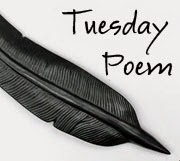19 March 2008
Arthur C. Clarke, 1917-2008
In the late 1960s, when I first became interested in science fiction, I came across frequent references to the "ABC of science fiction": Asimov, Bradbury and Clarke. Of the three, I never had much time for Bradbury's brand of ornate nostalgia, but in my late teens and early twenties, I devoured many novels and short stories by both Asimov and Clarke.
These days, I find Asimov hard going, but I can still re-read Arthur C. Clarke's early fiction with great pleasure. Clarke is often thought of as a hard SF writer, and indeed that is a strong component of his work; but unlike Hal Clement, Clarke's work makes room for both the rational and the transcendent. My favourites among his books are the early novels Against the Fall of Night/The City and the Stars and Childhood's End, and his first short story collection, Expedition to Earth.
In these books, his writing is at its most flexible and affecting. These novels and stories are full of regret for worlds and people lost, and wonder at what is to come: if the best of Bradbury and Clement had been blended together and then filtered through a distinctively English sensibility - a sensibility no less attuned than J.G. Ballard's to the dying of the light of Empire - these books are what might have resulted.
For these books, for his later peaks - 2001 and Rendezvous with Rama - and for his continuing engagement with the world, I will miss Arthur C. Clarke.
(You can also read a eulogy for Arthur C. Clarke by The Ninth Hermit, which features a fine picture of the man himself.)
These days, I find Asimov hard going, but I can still re-read Arthur C. Clarke's early fiction with great pleasure. Clarke is often thought of as a hard SF writer, and indeed that is a strong component of his work; but unlike Hal Clement, Clarke's work makes room for both the rational and the transcendent. My favourites among his books are the early novels Against the Fall of Night/The City and the Stars and Childhood's End, and his first short story collection, Expedition to Earth.
In these books, his writing is at its most flexible and affecting. These novels and stories are full of regret for worlds and people lost, and wonder at what is to come: if the best of Bradbury and Clement had been blended together and then filtered through a distinctively English sensibility - a sensibility no less attuned than J.G. Ballard's to the dying of the light of Empire - these books are what might have resulted.
For these books, for his later peaks - 2001 and Rendezvous with Rama - and for his continuing engagement with the world, I will miss Arthur C. Clarke.
(You can also read a eulogy for Arthur C. Clarke by The Ninth Hermit, which features a fine picture of the man himself.)
Subscribe to:
Post Comments (Atom)



2 comments:
Very nicely put. Clarke influenced many of us. Hope you don't mind if I link to this eulogy from my own.
Hi Tim. I enjoyed your reading the other evening. Yea, I also enjoyed Clarke's work. I remember reading 2001 when I about 10 or 11; it was one of the first SF books I read. It has the incredible line in it, something like: "The stargate opened. The stargate closed." As well as the neologism 'stargate' just the simplicity of the sentence struck me. And then I remember reading 'The Nine Billion Names of God' a few years later in my grandmother's house in Derker, Oldham, during Winter and that great last line: "And overhead, without any fuss, the stars were going out." Wow!I've had a lot of pleasure from his work over the years.
Post a Comment